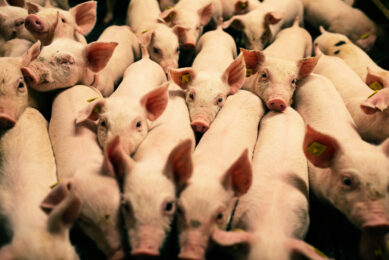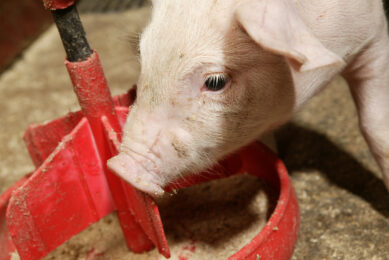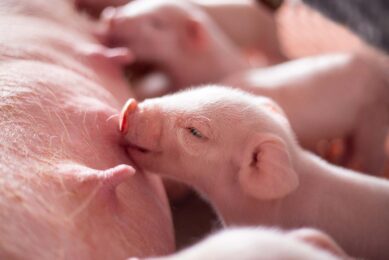Co-mingling decreases aggressive behaviour
Co-mingling litters during lactation affects piglets’ social behaviour, by primarily decreasing aggressive interactions during social challenges, as Purdue University study shows.
The purpose of the study was to determine how co-mingling litters affected piglets’ pre-weaning growth, ear injuries, suckling behaviour and responses to behavioural tests used to measure coping abilities.
Less aggression
It was shown that co-mingled piglets showed longer latency for the first aggressive interaction, spent more time in proximity to one another and performed less single bites than control piglets during the social challenge. In addition, the duration and frequency of aggressive interactions were lower in co-mingled piglets than control piglets. Co-mingling did not affect the frequency of single head thrusts or oral-nasal contact, but did tend to increase the frequency of escape attempts.
The results suggest that co-mingling litters during lactation affects piglets’ social behaviour, by primarily decreasing aggressive interactions during social challenges.
The research is to be published in the Journal of Applied Animal Behaviour Science











